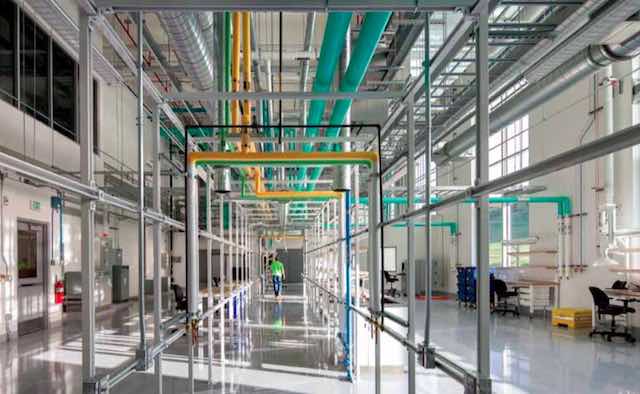How Is Electrical Engineering Used In The Design Of Energy-efficient HVAC Systems?
When it comes to designing heating, ventilation, and air conditioning (HVAC) systems, electrical design plays a crucial role in ensuring energy efficiency and safety. With modern HVAC systems becoming increasingly complex and advanced, it is essential to understand the key elements of electrical design to create a successful system.
Here are some important considerations for electrical design in modern HVAC systems:
Power Supply
One of the primary considerations for electrical design is the power supply for the system. HVAC systems may require a significant amount of energy to operate, so it is critical to ensure that the power supply is sufficient to handle the load. A thorough analysis of the electrical load requirements is essential to determine the appropriate power supply needed for the system.
Control Systems
Control systems are another crucial aspect of electrical design for modern HVAC systems. These systems enable the user to monitor and adjust various aspects of the HVAC system, including temperature, humidity, and air quality. Control systems may also include energy management systems that optimize energy consumption and reduce energy waste.
Motors and Drives
Motors and drives are integral components of HVAC systems, as they control the flow of air and ensure optimal performance. Electrical design for these components should focus on selecting motors and drives that are energy-efficient and that can provide the necessary performance for the system. Proper sizing and selection of these components is crucial to ensure optimal system performance and energy efficiency.
Wiring and Circuit Protection
Wiring and circuit protection are essential considerations for electrical design in HVAC systems. The wiring should be designed to handle the electrical load required for the system and should be properly protected to prevent electrical hazards, such as short circuits. Circuit protection devices, such as circuit breakers and fuses, should be selected and installed in accordance with the electrical load requirements.
Grounding and Bonding
Grounding and bonding are important safety measures in any electrical system, including HVAC systems. Proper grounding and bonding help to prevent electrical shock and reduce the risk of electrical fires. The electrical design for HVAC systems should include a detailed grounding and bonding plan that meets all relevant safety codes and regulations.
Backup Power Systems
Backup power systems, such as generators, can be a critical component of an HVAC system. In the event of a power outage, a backup power system can help keep the system running, ensuring that critical facilities such as hospitals and data centers remain operational. The electrical design for backup power systems should be carefully considered and should include a detailed plan for how the system will be powered in the event of an outage.
Lightning Protection
Lightning strikes can pose a significant threat to HVAC systems, particularly those located in areas with high lightning activity. The electrical design for HVAC systems should include a comprehensive lightning protection plan that includes lightning rods, surge protectors, and proper grounding and bonding. A well-designed lightning protection system can help prevent damage to the HVAC system and ensure the safety of the occupants of the building.
Conclusion
In conclusion, electrical design plays a critical role in modern HVAC systems, and it is essential to understand the key considerations for designing an efficient, safe, and reliable system. A thorough analysis of the electrical load requirements, careful selection of components such as motors and drives, and proper wiring and circuit protection are all crucial elements of electrical design. Additionally, backup power systems, grounding and bonding, and lightning protection should all be carefully considered to ensure optimal system performance and safety.

Post a Comment for "How Is Electrical Engineering Used In The Design Of Energy-efficient HVAC Systems?"